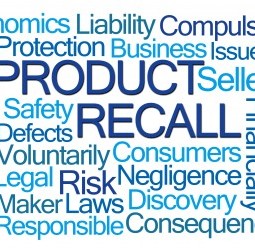Many women choose to undergo breast augmentation to enhance their appearance. Cosmetic surgery is generally considered less dangerous than other types of surgery, but thousands of women are discovering their breast implants have more health risks than they thought. A type of breast implants called textured breast implants have been linked to a rare form of cancer, forcing women to undergo additional surgeries and chemotherapy to fight the disease.
After receiving hundreds of reports, the U.S. Food and Drug Administration (FDA) issued a warning letter to doctors and patients regarding a link between textured breast implants and anaplastic large cell lymphoma (ALCL), a rare form of non-Hodgkin’s lymphoma.
While lymphoma can be caused by a variety of factors, in 2016 the World Health Organization (WHO) classified breast implant associated anaplastic large cell lymphoma (BIA-ALCL for short) as a distinct type of lymphoma.
What Is Non-Hodgkin’s Lymphoma?
Non-Hodgkin’s Lymphoma is a cancer of the immune system that starts within the white blood cells called lymphocytes. Non-Hodgkin’s Lymphoma can travel through the body via the bloodstream and affect other organs and tissues. BIA-ALCL is a type of Non-Hodgkin’s Lymphoma that can be found in fluid that accumulates around the implant.
How Do Textured Breast Implants Cause Cancer?
Textured breast implants are intentionally roughed up in the manufacturing process because the body can more easily attach itself to the implant. Although textured breast implants allow for a better connection between the breast tissues and the implant, the body’s immune system will respond to foreign objects in the body by building up scar tissue. While doctors are not completely sure how breast implants cause cancer, BIA-ALCL is found in the scar tissue and fluid around breast implants. Women who have textured breast implants have a 67.6 times greater risk of developing BIA-ALCL than women without breast implants.
Know The Signs of BIA-ALCL
In the early stages of BIA-ALCL, many women experience painful symptoms including back pain, painful swelling in the breasts, lumps, and asymmetry in the breasts. Women can also suffer from fevers, weight loss, tiredness, loss of appetite, and night sweats.
Breast implant manufacturers have a responsibility to ensure their products are safe for use and that all risks are clearly communicated to patients. Breast implant manufacturers failed to uphold this responsibility, and now women are trying to hold them accountable by filing lawsuits against various manufacturers.
Frequently Asked Questions
Frequently Asked Questions
In the United States, a tort refers to a, “body of rights, obligations, and remedies that is applied by courts in civil proceedings to provide relief for persons who have suffered harm from the wrongful acts of others.”
What is MDL?
An MDL stands for multidistrict litigation and is a special legal procedure conducted in federal court that is designed to quickly conduct the handling of complex cases, which can include dangerous drug and medical device lawsuits.
Product Defects
It means the manufacturer made an error either in the design or the fabrication of a product that causes it to not work as intended. This can be especially dangerous in many cases, such as those of faulty medical devices and prescription drugs.
Defective Design
A defective design in a product is one that is so great, the product cannot be utilized for the purposes intended or is even made hazardous as a result of the defect, imperfection, or design flaw. In the case of medical devices, this can be a deadly mistake.




